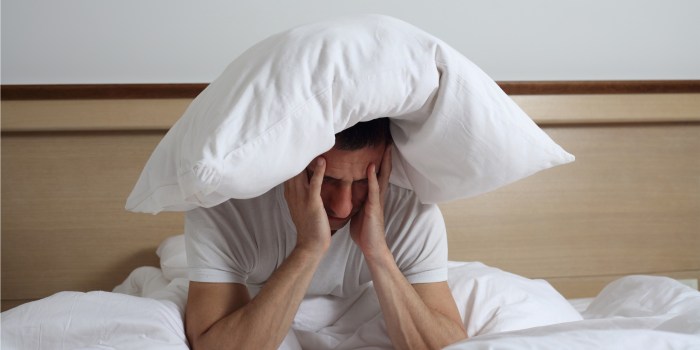A menopausal client is having difficulty getting to sleep – Exploring the multifaceted challenges faced by menopausal clients experiencing sleep difficulties, this comprehensive guide delves into the hormonal, behavioral, lifestyle, pharmacological, and cognitive factors that contribute to disrupted sleep patterns. With a focus on evidence-based interventions and practical strategies, this discussion empowers healthcare professionals to effectively support their clients in achieving restful and restorative sleep.
Menopause, a natural transition marked by hormonal fluctuations, can significantly impact sleep quality. Understanding the underlying mechanisms and adopting holistic approaches to address sleep disturbances is crucial for optimizing the well-being of menopausal clients.
Causes of Sleep Disturbances in Menopausal Clients

Menopause, the natural cessation of menstruation, brings about hormonal changes that can significantly impact sleep quality.
- Decreased Estrogen Levels:Estrogen plays a role in regulating sleep-wake cycles. Its decline during menopause can disrupt sleep patterns and lead to insomnia.
- Hot Flashes and Night Sweats:These common menopausal symptoms can cause sudden awakenings and interfere with sleep continuity.
- Medical Conditions and Medications:Certain medical conditions associated with menopause, such as thyroid disorders, can also contribute to sleep difficulties. Additionally, medications used to treat menopausal symptoms, like hormone replacement therapy, may have side effects that affect sleep.
Behavioral Strategies for Improving Sleep

Behavioral strategies can help menopausal clients improve their sleep quality.
- Relaxation Techniques:Yoga, meditation, and deep breathing exercises can reduce stress and promote relaxation before bed.
- Regular Sleep-Wake Cycle:Maintaining a consistent sleep-wake cycle, even on weekends, helps regulate the body’s natural sleep-wake rhythm.
- Conducive Sleep Environment:Creating a dark, quiet, and cool sleep environment can enhance sleep quality.
Lifestyle Modifications to Promote Sleep

Lifestyle modifications can also contribute to improved sleep in menopausal clients.
- Limiting Caffeine and Alcohol:Caffeine and alcohol can interfere with sleep. Limiting their consumption before bed is beneficial.
- Regular Exercise:Regular physical activity can improve sleep quality, but it’s important to avoid exercising too close to bedtime.
- Healthy Diet:A balanced diet can contribute to better sleep. Eating a light, healthy dinner before bed and avoiding large meals can promote sleep.
Popular Questions: A Menopausal Client Is Having Difficulty Getting To Sleep
What are the most common causes of sleep disturbances in menopausal clients?
Hormonal changes, hot flashes, night sweats, and underlying medical conditions or medications can contribute to sleep difficulties in menopausal clients.
How can behavioral strategies improve sleep in menopausal clients?
Establishing a regular sleep-wake cycle, practicing relaxation techniques like yoga or meditation, and creating a conducive sleep environment can promote better sleep.
What pharmacological interventions are available for sleep disturbances in menopausal clients?
Over-the-counter sleep aids, prescription sleep medications, and alternative therapies like acupuncture or herbal remedies may be considered, with careful evaluation of potential benefits and risks.